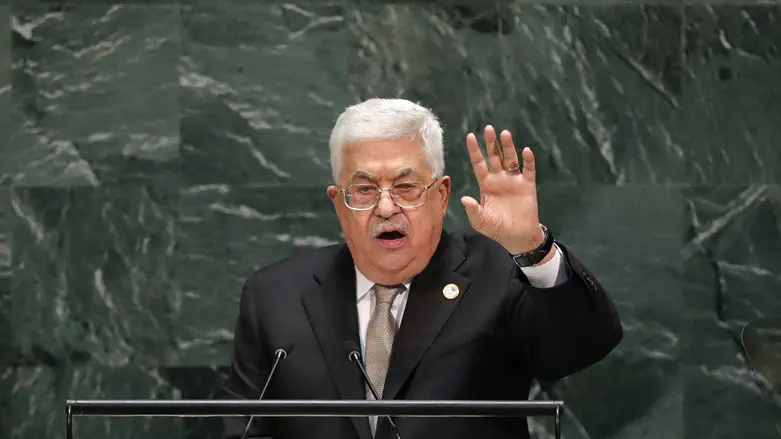
Two potential successors to Palestinian Authority (PA) chairman Mahmoud Abbas were named on Monday to top posts in the Palestine Liberation Organization at a meeting boycotted by his Islamist rivals, Reuters reported.
The PLO’s 141-member Central Council appointed Hussein Al-Sheikh, 61, an Abbas confidant who serves as key liaison with Israel and the United States, to the PLO’s Executive Committee. He is likely to replace Saeb Erekat, who died after contracting COVID-19 in November 2020, as the committee’s secretary-general.
Al-Sheikh is the top PA official who recently met with Foreign Minister Yair Lapid.
The council, meeting for the first time in nearly four years, also picked Rawhi Fattouh, 73, another Abbas aide, to head the PLO’s highest decision-making body, the National Council.
Both men were nominated by Abbas, 86, and his Fatah party and are widely seen in PA territories as possible successors to the PA chairman.
The Hamas and Islamist Jihad organizations turned down an invitation to attend the council’s two-day session, which began on Sunday, saying Abbas had to institute power-sharing reforms first, according to Reuters.
Abbas heads the PLO and the Palestinian Authority, which exercises limited self-rule in Judea and Samaria. His main rival, Hamas, runs the Gaza Strip.
Hamas and Fatah have been embroiled in a bitter rivalry since 2007, when Hamas violently took over the Gaza Strip from Fatah in a bloody coup.
The two organizations signed a reconciliation deal in late 2017, but that agreement has never been implemented and is one of many attempts that have failed over the years to ease the tensions between the two groups.
Abbas’ rule is seen as illegitimate by his rivals, as elections in PA territories have not been held since 2005. Abbas' term as PA chairman was meant to expire in 2009, but he has remained in office in the absence of elections.
Abbas officially announced last April that the Palestinian legislative elections would be postponed. While he cited Israel’s refusal to allow Arabs residing in eastern Jerusalem to vote as the reason for the postponement, many believe that the real reason is Abbas’ fear that he would lose the elections to Hamas.
Hamas, which opposed the postponement of the elections, in turn threatened a confrontation with the Palestinian Authority in response to the move.
